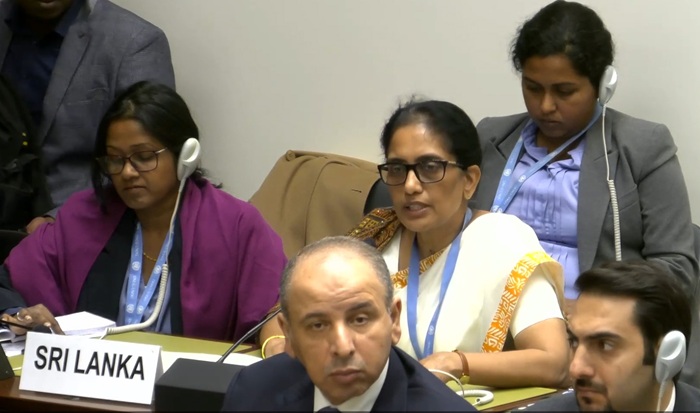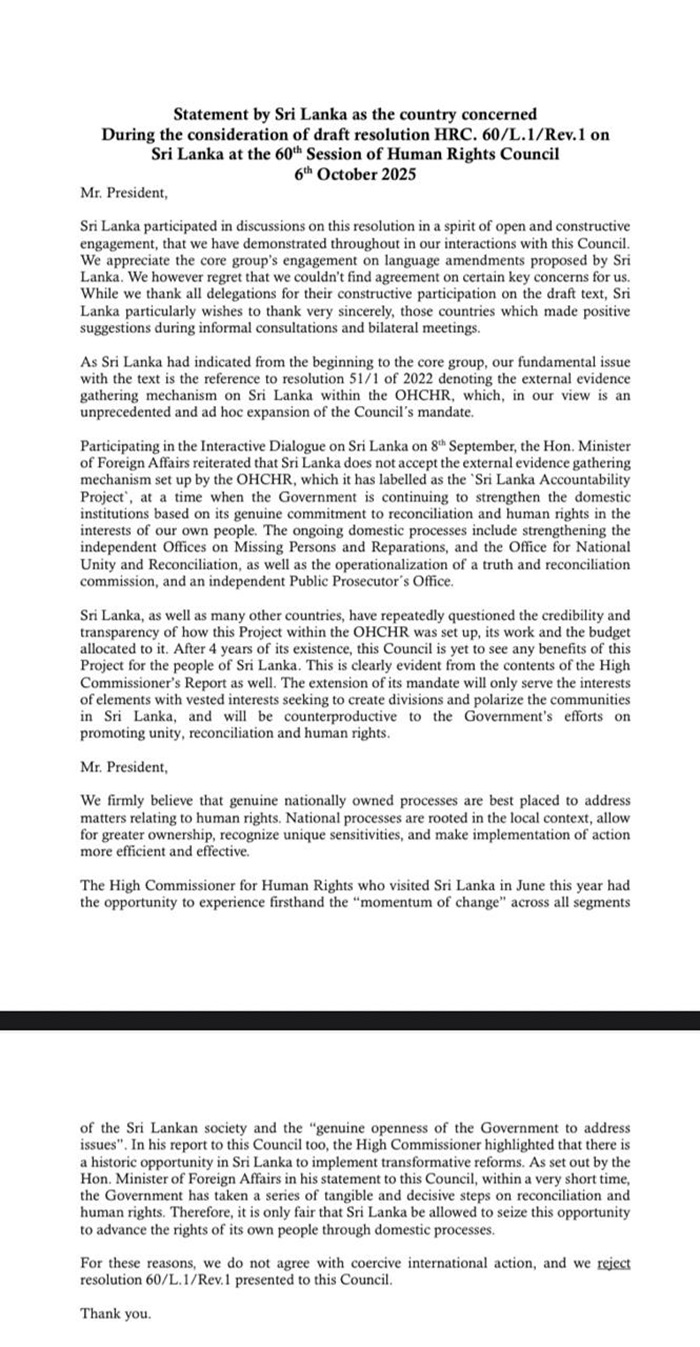
Sri Lanka has rejected a draft resolution (HRC 60/L.1/Rev.1) at the 60th session of the UN Human Rights Council, citing concerns over an external evidence-gathering mechanism established under a 2022 resolution.
According to the statement, Sri Lanka participated in discussions on this resolution in a spirit of open and constructive engagement, which it had demonstrated throughout in its interactions with this Council.
“We appreciate the core group’s engagement on language amendments proposed by Sri Lanka. We, however, regret that we couldn’t find agreement on certain key concerns for us. While we thank all delegations for their constructive participation on the draft text, Sri Lanka particularly wishes to thank very sincerely those countries which made positive suggestions during informal consultations and bilateral meetings,” the statement said.
The statement points out that, as Sri Lanka had indicated from the beginning to the core group, the country’s fundamental issue with the text is the reference to resolution 51/1 of 2022, denoting the external evidence gathering mechanism on Sri Lanka within the OHCHR, which, in its view, is an unprecedented and ad hoc expansion of the Council´s mandate.
“Participating in the Interactive Dialogue on Sri Lanka on 8th September, the Minister of Foreign Affairs reiterated that Sri Lanka does not accept the external evidence gathering mechanism set up by the OHCHR, which it has labelled as the `Sri Lanka Accountability Project`, at a time when the Government is continuing to strengthen the domestic institutions based on its genuine commitment to reconciliation and human rights in the interests of our own people. The ongoing domestic processes include strengthening the independent Offices on Missing Persons and Reparations, and the Office for National Unity and Reconciliation, as well as the operationalization of a truth and reconciliation commission, and an independent Public Prosecutor´s Office,” it said.
The statement further says Sri Lanka, as well as many other countries, have repeatedly questioned the credibility and transparency of how this Project within the OHCHR was set up, its work and the budget allocated to it, pointing out that after 4 years of its existence, this Council is yet to see any benefits of this Project for the people of Sri Lanka.
“This is clearly evident from the contents of the High Commissioner’s Report as well. The extension of its mandate will only serve the interests of elements with vested interests seeking to create divisions and polarize the communities in Sri Lanka, and will be counterproductive to the Government’s efforts on promoting unity, reconciliation and human rights,” the statement added.
Pointing out that it is only fair that Sri Lanka be allowed to seize this opportunity to advance the rights of its own people through domestic processes, the statement says that for these reasons, Sri Lanka does not agree with coercive international action, and it rejects resolution 60/L.1/Rev.1 presented to this Council.
The statement by Sri Lanka, as the country concerned, delivered during the consideration of draft resolution HRC.60/L.1/Rev.1 on Sri Lanka at the 60th session of the Human Rights Council:

